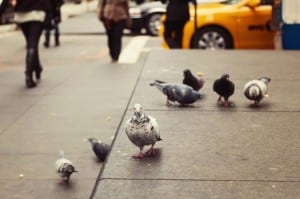 25India and her neighbours ought to remember that from superstition to intolerance is often a short step
25India and her neighbours ought to remember that from superstition to intolerance is often a short step
We’re in a sort of skiff under a small bridge over the river Ravi in Lahore. Heavy traffic, incessant honking, and all the expected city noises fill the air. The river itself is sluggish, and, like the Yamuna in Delhi, more a drain than a river. As our little boat makes its way from one shore to another, a strange packet floats down from the bridge into the river. I think resignedly how alike we are across borders: stand anywhere, and chuck anything overboard without a thought about the consequences.
But I’m wrong — in one thing at least. This is not rubbish as I soon discover: a bunch of kites parked on a small mud island quickly wing it across and pick at the packet. Later, standing on the bridge, the story unravels. Dotted here and there along both sides of the bridge are men and women holding plastic bags. They’re poor, some are disabled and what they have in their hands is meat — the offal and leftover bits of meat that humans don’t eat, which they purchase from butchers for cheap.
Here, on the bridge, the meat-sellers stand and offer this to anyone who wants to leverage some good karma by feeding the birds. So, the rich and the middle-class stop by, and they or their drivers step out and buy, and then cursorily chuck it over the side. Good deed done, they can get on with life. Meanwhile, as an environmental activist tells me, the birds suffer, they grow fatter and fatter, and sometimes this kills them and their numbers fall.
I’m struck by how alike we are — no matter that we are across the border. And no matter that there may be differences in religion. Here, in Delhi, every day when I drive to work, I see a similar sight.
Turning off the main road to the lane that leads to my office, I traverse a small traffic island on my right. Here, every morning, a young man arrives bearing two large sacks of grain and chana, and a number of light metal plates. He sets himself up with four or five plates and, soon enough, cars stop, oblivious to the vehicles of office-going people they are blocking. They buy a plate and then chuck its contents right there. Then, there’s a great flapping of wings as hundreds of pigeons descend onto the food and begin to eat it up. Meanwhile the grain-throwers get on with life, secure in the knowledge that they have earned their brownie points for this life and the next.
The scattering of grain on the ground goes on all day. By evening, the pigeons are stuffed and disinterested, the young entrepreneur (what else can you call him?) is still there, and sometimes a desultory customer will show up and he’ll get some more business. One day I watched a young girl arrive in a large limousine. While her rich parent sat in car, the girl stepped out, ayah in tow. Instructions relayed from parent to driver to ayah to the supremely bored girl, who followed those nonetheless. Perhaps she had an exam to clear or an engagement in the offing.
Elsewhere there may be people feeding monkeys, or cows, or crows. It’s a strange thing: we destroy their habitat, and then feed them silly to gain good karma.
I’m struck by many things about this phenomenon: there’s the spirit of entrepreneurship. For the poor, whether it’s in Lahore or Delhi or elsewhere, it’s a way to trade on people’s blind faith and make a rupee or two out of it. You have to admire that.
But then, there’s also this question that bothers me every day: how have we become so deeply superstitious? Where does that come from? And why are we unable — or unwilling — to see that the pigeons and kites and other sundry animals and birds are being overfed?
There are other concerns too: it’s easy for me to laugh at the pigeon-feeders but this isn’t just funny. It’s precisely this kind of superstition and blind belief that kills the Dabholkars, Pansares and Kalburgis of this world. From superstition to intolerance is often a short step: you can convince yourself that, say, eating beef will bring you bad karma — even if it’s your neighbour eating it — and you then take law into your own hands and kill them. Or you can convince yourself that a woman is actually a witch and you destroy her life (and sometimes take over her property too).
Increasingly, in India today — and who knows, perhaps across the border too — using superstition and blind belief, or exploiting the human need for faith, have become weapons in the hands of cynical politicians and corporates.
If a builder can conduct human sacrifices to appease the evil spirits in a building where people will live and love and give birth and die, there has to be something seriously wrong with us.
About Pigeon Patrol:
Pigeon Patrol Products & Services is the leading manufacturer and distributor of bird deterrent (control) products in Canada. Pigeon Patrol products have solved pest bird problems in industrial, commercial, and residential settings since 2000, by using safe and humane bird deterrents with only bird and animal friendly solutions. At Pigeon Patrol, we manufacture and offer a variety of bird deterrents, ranging from Ultra-flex Bird Spikes with UV protection, Bird Netting, 4-S Gel and the best Ultrasonic and audible sound devices on the market today.
Voted Best Canadian wholesaler for Bird Deterrent products four years in a row.
Contact Info: 1- 877– 4– NO-BIRD (www.pigeonpatrol.ca)

